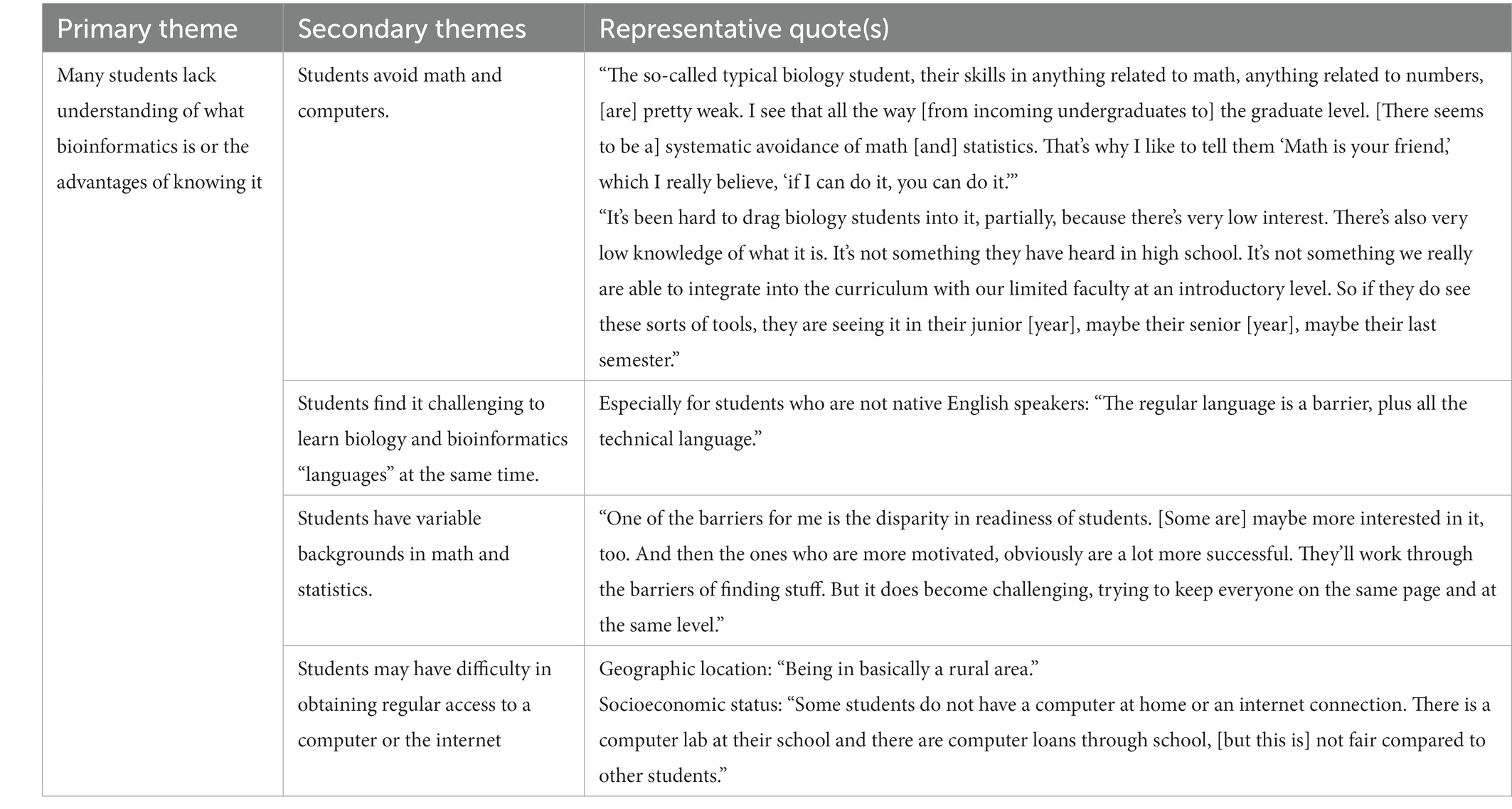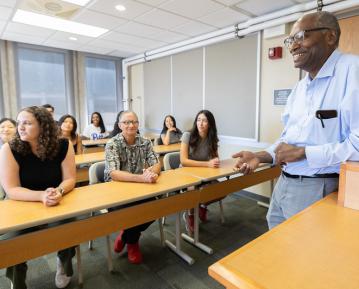The 3-Minute Rule for Bioinformatics Tutor
The 3-Minute Rule for Bioinformatics Tutor
Blog Article
Unknown Facts About Bioinformatics Tutor
Table of ContentsThe Greatest Guide To Bioinformatics TutorThe Basic Principles Of Bioinformatics Tutor 5 Simple Techniques For Bioinformatics TutorSome Ideas on Bioinformatics Tutor You Need To KnowThe Single Strategy To Use For Bioinformatics Tutor
Of the overall participants involved in the training, 80% were pupils from public college institutions, while the continuing to be 20% came from personal institutions. To certify for a certificate of involvement, trainees were needed to attend at least 90% of the complete training hours. As an outcome of this need, an excellent 95% of the individuals efficiently gotten their certificates, having not only met the minimum presence criteria however likewise finished all appointed tasks throughout the training.
During the elevation of the COVID-19 pandemic, especially between June and August 2020, the project team was entrusted with organizing specialized training in bioinformatics. This training was especially targeted at trainees from the study team Core for Study in Applied Computer at the Federal College of Pará (UFRA) The adaptation to remote learning systems because of the pandemic created a chance to discover new teaching methodologies and digital tools that improved both reach and effectiveness.
This training course was made to supply an accessible yet comprehensive overview of Artificial Intelligence strategies, especially as applied in bioinformatics (Bioinformatics Tutor). This digital format enabled engagement from pupils throughout Brazil, several of whom could not have had the possibility to participate in in-person sessions.
The Bioinformatics Tutor Diaries
Approximately 50% of the complete training hours were dedicated to practical tasks where trainees built intelligent designs and applications in a range of scientific domain names, consisting of genetics, molecular biology, and environmental data evaluation. These systems made it possible for trainees to engage in real-time information adjustment, model training, and algorithm testing.
Sixty of them were connected with various higher education and learning establishments in the state of Pará, while the continuing to be twenty came from establishments found in 5 various other Brazilian states. By introducing Artificial Intelligence in a pertinent and sensible context, the effort served to link the void between concept and real-world application, supplying pupils with a solid structure for future research study or work in the field.
The training campaign formed part of a more comprehensive scholastic outreach effort referred to as the Bioinformatics on the Roadway job. This project has, for many years, introduced dozens of pupils to the globe of bioinformatics and computational biology. The occasions held under this umbrella campaign have actually occurred throughout numerous regions and years, as summarized in Table 1 (Listing of events, locations, years, and overall varieties of students and trainers)
One of one of the most amazing outcomes of the Bioinformatics when driving effort has been its payment to the growth of decentralized research teams. Numerous of these teams, at first brought together by their participation in training occasions, have given that taken place to generate independent scientific study in collaboration with regional academic organizations. The training not just cultivated clinical reasoning within the context of bioinformatics but additionally sparked collaborative connections that click to find out more extended beyond the training setting. These cooperations have resulted in boosted regional clinical productivity and added meaningfully to the development of the wider bioinformatics community in Brazil.
The Buzz on Bioinformatics Tutor
The project itself was conceived and organized by megabytes and RR, that looked after the planning and implementation of each action. Lectures were provided by a multidisciplinary group containing MB, FA, EF, KP, JS, DM, SN, LP, LG, IH, ac, and rr. The exact same group, excluding IH and RR, additionally served as tutors for the functional training components. Financing for the task was provided with the give 88887.200562/ 2018-00 from CAPES. The writers extend their gratitude to every person who look at this now added to the realization of this project, whether directly or indirectly, because its inception.
The Federal College of Pará's Office of Study (PROPESP/UFPA) likewise offered monetary assistance, particularly for the manufacturing of the final manuscript. The writers declare no monetary or industrial disputes of passion that could have affected the research. All analyses and point of views expressed in this post are solely those of the authors and do not always mirror those of their particular institutions, the publisher, editors, or reviewers included in the publication procedure.

The Ultimate Guide To Bioinformatics Tutor
From a pedagogical perspective, the mentor strategy utilized in the training was intentionally interactive. Courses were conducted in a way that encouraged student participation and discussion, going beyond rote memorization to discover exactly how concepts are developed, applied in day-to-day life, and tested in academic setups. The training approach concentrated on nurturing both strong and struggling trainees, supplying individualized support, and building self-confidence with sustained mentorship and perseverance.

Each group, containing approximately 36 individuals, was sustained by three mentors-- a lot of whom were postdoctoral scientists with customized proficiency. These coaches not only assisted design the group tasks however additionally promoted their implementation, making sure that each research study concern was both properly difficult and relevant. The goal was to give a naturally practical context that participants could explore through open-ended purposes and accessibility to curated datasets.
For added insights right into the method and end results of this project-based understanding technique, viewers are routed to S1 Text, which consists of thorough summaries of the instructional framework, evaluation approaches, and job motifs used in the training sessions.
The 20-Second Trick For Bioinformatics Tutor
Of the overall participants included in the training, 80% were students from public greater education and learning organizations, while the staying 20% came from exclusive establishments. To qualify for a certification of participation, trainees were required to attend at least 90% of the total training hours. Especially, beyond the pupils who registered in the training sessions, seven seasoned instructors got involved in delivering the programs, while 3 dedicated study teachers collaborated the total training procedure. About 50% of the complete training hours were dedicated to useful tasks where pupils built intelligent versions and applications in an array of clinical domains, consisting of genetics, molecular biology, and ecological information analysis. The training not just cultivated scientific reasoning within the context of bioinformatics yet also stimulated collective partnerships that prolonged beyond the training setting.
Report this page